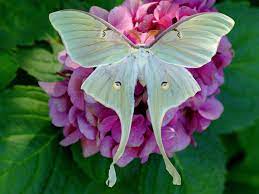Whether you’re a first-time gardener or have years of experience, there are always ways to improve your gardening skills and grow a healthy, thriving garden. Here are 10 essential tips that will help you enhance your gardening game.
1. Know Your Zone
Understanding your hardiness zone is key to selecting the right plants for your garden. The USDA plant hardiness zone map divides regions based on climate and temperature patterns. Choose plants that are suited for your zone to ensure they thrive throughout the year.
2. Start with Healthy Soil
Healthy soil is the foundation of a healthy garden. Test your soil’s pH levels and amend it accordingly with organic matter like compost or well-rotted manure. Well-draining soil with proper nutrients is essential for plant growth.
3. Choose the Right Plants
Pick plants that suit your climate, soil, and garden conditions. Consider whether your garden gets full sun, partial shade, or deep shade. You’ll also want to think about how much time you can dedicate to maintenance. Some plants are low-maintenance, while others may require extra care.
4. Water Wisely
Watering is an art. Water your garden deeply but infrequently to encourage strong root systems. Early morning or late evening is the best time to water to minimize evaporation. Make sure your garden has adequate drainage, as standing water can cause root rot and other problems.
5. Mulch for Moisture
Apply a layer of mulch around your plants to help retain moisture, suppress weeds, and regulate soil temperature. Organic mulches like shredded bark or straw are great for enriching the soil as they decompose over time.
6. Prune Regularly
Regular pruning encourages healthy growth, prevents diseases, and keeps plants looking their best. Deadhead flowers to promote new blooms, and prune shrubs or trees to remove dead or diseased wood. Be sure to use sharp, clean tools to prevent injury to plants.
7. Practice Companion Planting
Certain plants work better together because they can enhance growth or deter pests. For example, planting marigolds with tomatoes can help keep pests away. Do some research on companion planting to help maximize space and health in your garden.
8. Feed Your Plants
Just like humans, plants need food to grow strong. Fertilize your plants with the right nutrients for their needs. Organic fertilizers like compost, fish emulsion, or worm castings are great options. Avoid over-fertilizing, as this can lead to excessive foliage growth at the expense of flowers and fruit.
9. Control Weeds Early
Weeds compete with your plants for nutrients and water, so it’s important to remove them regularly. Pull weeds by hand or use a hoe, especially when they’re small and easy to remove. Applying mulch can also help reduce weed growth.
10. Don’t Forget to Enjoy the Process
Gardening should be fun and rewarding! Take time to enjoy your work, and don’t stress over every little imperfection. Celebrate your successes and learn from any mistakes. A garden is an ongoing project, and every season brings something new to discover.
Bonus Tip: Stay Consistent
Gardening requires patience and consistency. Make a schedule for watering, pruning, and fertilizing, and stick to it. Consistency will help you maintain a healthy garden and keep your plants thriving throughout the year.
Gardening can be an incredibly fulfilling hobby. Whether you’re growing flowers, vegetables, or herbs, these tips will help you achieve a flourishing garden that you can enjoy year-round. Happy gardening!






















